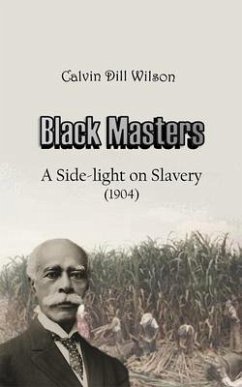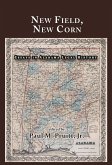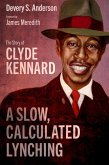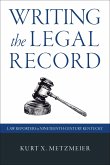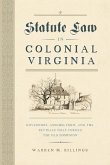"Wilson finds that there were about 6,200 colored slave-holders in the days of yore, and that these 'Black Masters' owned some 18,000 slaves." -The African Abroad (1913)
"An extremely interesting article." -Albany Law Journal (1905)
"While doing research on black slaveholders early in this century, Calvin Dill Wilson discovered further evidence of William Ellison's reputation for harshness." -Black Masters: A Free Family of Color in the Old South (1984)
"In rural Virginia and Maryland also there were free colored slaveholders in considerable numbers." -American Negro Slavery (2013)
"Calvin Dill Wilson is a writer of prominence for magazines." -Harry Probasco, U.S. House of Representatives Hearing, 1918
Is it a fact that African-Americans owned slaves in the South before the Civil War, but few people seem to know it?
If what Calvin Dill Wilson states in his short 19-page book "Black Masters," is true, wealthy free African-Americans bought and sold members of their own race just as did the Southern white planter, and African-Americans, once slaves and freed by their white masters, became slave-owners, themselves.
"To judge from all that is known on the subject, we may assume that the only thing that prevented the great majority of colored people from buying and trading in one another, was, in addition to the law in some States, their lack of means," according to Watson's Magazine (1913).
In introducing his short work, Wilson writes:
"The most singular and dramatic aspect of slavery in the United States was the occasional ownership of bondsmen by free blacks. Historically, the facts are obscure, little known and difficult to trace; this phase is overlooked by historians, so far as I am aware, and is lost from the memories of most people of this generation..."
More about the author:
The Rev. Calvin Dill Wilson, D. D., (1857-1946) was born in Baltimore, Maryland, was graduated at Washington and Jefferson College, Washington, Pennsylvania, in 1876, and from the Western Theological Seminary, Allegheny, Pennsylvania, in 1879. He was licensed to preach as a Presbyterian minister by the Presbytery of Pittsburg, April, 1878, and was ordained by the Presbytery of Chester in May, 1880. He was pastor at Atglen, Pennsylvania, 1879-83, Churchville, Maryland, 1883-93, Franklin, Ohio, 1893-1903. He has been pastor at Glendale, Ohio, near Cincinnati, since 1903.
He was the author of
. "The Story of the Cid, for Young People,"
. "The Flight of the Hebrews,"
. "Making the Most of Ourselves"
. "Working One's Way through College" and
. "A Lost Chapter of American History: An Account of Negroes Who Owned Slaves."
He also contributed to a large number of magazines and newspapers, essays, verses and stories.
"An extremely interesting article." -Albany Law Journal (1905)
"While doing research on black slaveholders early in this century, Calvin Dill Wilson discovered further evidence of William Ellison's reputation for harshness." -Black Masters: A Free Family of Color in the Old South (1984)
"In rural Virginia and Maryland also there were free colored slaveholders in considerable numbers." -American Negro Slavery (2013)
"Calvin Dill Wilson is a writer of prominence for magazines." -Harry Probasco, U.S. House of Representatives Hearing, 1918
Is it a fact that African-Americans owned slaves in the South before the Civil War, but few people seem to know it?
If what Calvin Dill Wilson states in his short 19-page book "Black Masters," is true, wealthy free African-Americans bought and sold members of their own race just as did the Southern white planter, and African-Americans, once slaves and freed by their white masters, became slave-owners, themselves.
"To judge from all that is known on the subject, we may assume that the only thing that prevented the great majority of colored people from buying and trading in one another, was, in addition to the law in some States, their lack of means," according to Watson's Magazine (1913).
In introducing his short work, Wilson writes:
"The most singular and dramatic aspect of slavery in the United States was the occasional ownership of bondsmen by free blacks. Historically, the facts are obscure, little known and difficult to trace; this phase is overlooked by historians, so far as I am aware, and is lost from the memories of most people of this generation..."
More about the author:
The Rev. Calvin Dill Wilson, D. D., (1857-1946) was born in Baltimore, Maryland, was graduated at Washington and Jefferson College, Washington, Pennsylvania, in 1876, and from the Western Theological Seminary, Allegheny, Pennsylvania, in 1879. He was licensed to preach as a Presbyterian minister by the Presbytery of Pittsburg, April, 1878, and was ordained by the Presbytery of Chester in May, 1880. He was pastor at Atglen, Pennsylvania, 1879-83, Churchville, Maryland, 1883-93, Franklin, Ohio, 1893-1903. He has been pastor at Glendale, Ohio, near Cincinnati, since 1903.
He was the author of
. "The Story of the Cid, for Young People,"
. "The Flight of the Hebrews,"
. "Making the Most of Ourselves"
. "Working One's Way through College" and
. "A Lost Chapter of American History: An Account of Negroes Who Owned Slaves."
He also contributed to a large number of magazines and newspapers, essays, verses and stories.
Dieser Download kann aus rechtlichen Gründen nur mit Rechnungsadresse in A, D ausgeliefert werden.

